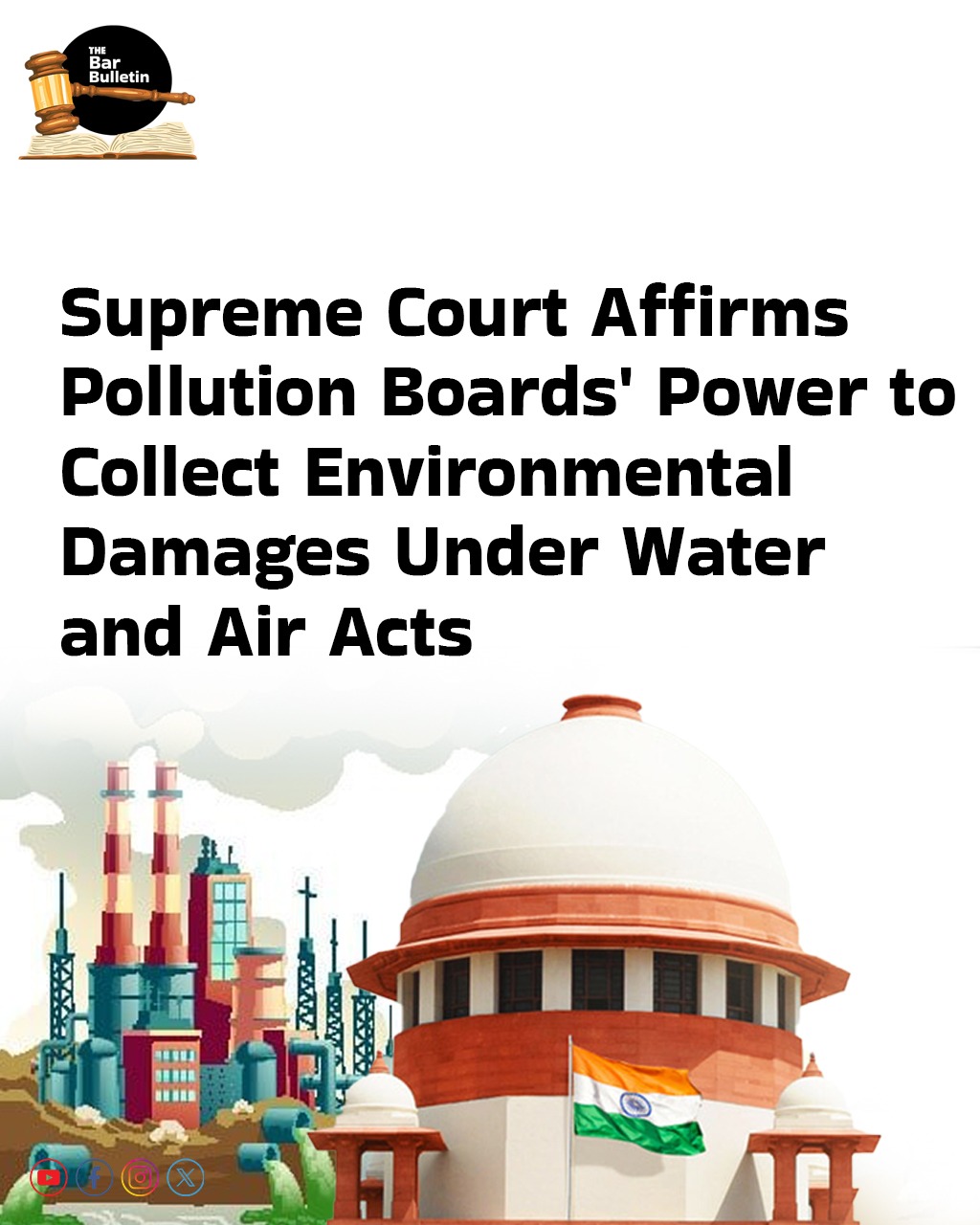The Supreme Court of India upheld the power of environmental regulators including the Delhi Pollution Control Committee (DPCC) to impose and collect restitutionary and compensatory damages under Sections 33A and 31A of the Water (Prevention and Control of Pollution) Act, 1974 and the Air (Prevention and Control of Pollution) Act, 1981.
A Bench of Justice P.S. Narasimha and Justice Manoj Misra allowed appeals filed by DPCC, reversing a Delhi High Court ruling in Splendor Landbase Ltd. v. DPCC, 2012 (195) DLT 177, that had held environmental regulators could not impose such damages in the absence of express penal provisions. The High Court had earlier concluded that the levy of fixed monetary sums or demand of bank guarantees amounted to penalty, and therefore required prosecution and adjudication through criminal courts as provided under Chapters VI and VII of the respective Acts.
The apex court clarified that directions issued by pollution control boards demanding environmental compensation or bank guarantees are not punitive in nature, but rather compensatory or restitutionary—aimed at preventing or remedying environmental damage, even in the absence of actual harm.
Key Takeaways from the Judgment:
• Environmental regulators have the authority to impose damages or demand bank guarantees as an ex-ante measure under Sections 33A (Water Act) and 31A (Air Act).
• The Court distinguished compensatory damages from penalties, emphasizing that the former are preventive and remedial, not punitive.
• The Polluter Pays Principle, embedded in Indian environmental jurisprudence, allows for such action, even where pollution has not yet occurred but is likely.
• Recent amendments establishing the post of Adjudicating Officers under the Acts do not conflict with these powers, as the Board’s compensatory action is separate from statutory penalties.
The Court emphasized that directions under Sections 33A and 31A must be exercised transparently, and mandated that pollution control boards codify procedures for quantifying environmental damage and enforcing such recovery. These procedures must incorporate natural justice principles, be grounded in subordinate legislation, and move beyond informal guidelines.
Although the Court upheld the legal principle, it declined to revive the original 2006 show cause notices issued by DPCC to developers (including Bharti Realty Ltd. and others), noting the passage of time and concurrent findings of the lower courts. Any amounts already collected pursuant to those notices must be refunded within six weeks, and no further recovery action may be initiated based on them.
Appearances:
For the Appellant (DPCC): Mr. Pradeep Misra, Advocate
For the Respondents: Mr. Ninad Laud, Advocate; Mr. Pinaki Misra, Senior Advocate
Note: The Supreme Court has set aside the judgment in Splendor Landbase Ltd. v. Delhi Pollution Control Committee, 2012 (195) DLT 177, but only to the extent it held that Pollution Control Boards lack the power to impose environmental compensation or require bank guarantees under Sections 33A and 31A of the Water and Air Acts.
![]()

